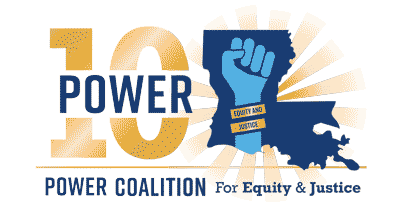CARES Act Highlights
On March 25, 2020 the Federal Government passed the largest stimulus package in modern history in response to the COVID-19 pandemic. This package is lengthy and has a number of important parts. Below you can find some of the highlights of this bill. We will continue to monitor these resources and update if any new information becomes available.
Stimulus Checks:
Millions of Americans will be getting money from the federal government to support the economy. This money will go to all people who filed 2018 or 2019 taxes.
- Individuals who made $75,000 or less will receive a check for $1,200
- Individuals who filed jointly and made over $75,000 will receive decreasing amounts until it cuts off at $99,000.
- Couples who filed jointly and made less than $150,000 will receive $2,400.
- Couples who filed jointly and made over $150,000 will receive decreasing amounts until it cuts off at $198,000.
- Each child claimed on taxes will be an additional $500
- Heads of households (a single person with dependents) making less than $112,500 will also be eligible for this money.
If you used direct deposit for your taxes you can expect to receive this money in as few as three weeks. If you do not have a bank account on file with the IRS your check will be mailed to you, likely taking longer.
Unemployment:
Unemployment benefits are accessible to people unable to work due to the coronavirus. This is an expansion of typical unemployment eligibility.
Updated Qualifications Include:
- Gig economy workers classified as independent contractors and self-employed people
- Individuals who have not been laid off, but who cannot work for the following reasons, also qualify: having been diagnosed with COVID-19, waiting for a diagnosis, having a family member diagnosed with the virus, or if the head of household died of COVID-19. Workers who are furloughed are now eligible for unemployment.
Changes in Benefits:
- Federal government will provide an additional $600 on top of existing state unemployment benefits, for up to four months.
- State unemployment eligibility has been expanded for a total of 39 weeks.
- There is no 7-day waiting period before one can get benefits.
Family and Medical Leave Act (FMLA):
The new bill expands the FMLA to cover workers who must miss work due to COVID-19.
- Businesses with fewer than 500 employees to get up to 12 weeks of family leave (the first two weeks are unpaid) if they must stay home with children whose schools or daycare centers have closed due to the pandemic. The benefit is two-thirds pay with a maximum of $200 per day.
- Both full-time and part-time employees will get 80 hours of paid sick leave at full pay, with a maximum of $511 per day.
- Employees that have to stay home to care for someone else who has or is suspected of having COVID-19 are eligible for two-thirds of their pay at a maximum of $200 per day.
Small Businesses:
The bill has invested money in supporting small businesses to support them through the economic downturn, including:
- Zero-interest loans for firms with fewer than 500 employees. These loans may be forgiven if they follow conditions, such as not firing their workers.
- The loans will convert to grants if they are used to cover employee salaries, rent, paid leave, utility payments, health insurance premiums or other necessities or worker protections.
- Nonprofits are eligible for these funds.
Student Loans:
- Interest will not be added on federal student loans from April through September 30, and payments on the principle will not be required during this time.
- If someone is making payments toward public service loan forgiveness or other forgiveness payments, even if payments are not made during this period, it will be treated as if the borrower made a payment.
- Credit reports and scores will not be impacted during this period.
Housing:
There are provisions in the stimulus package to protect people from losing their homes.
This includes:
- Temporary stops on evictions for renters in federally subsidized apartments
- Temporary stops on foreclosures for homeowners with federally backed mortgages
Hospitals and Public Health:
The stimulus package includes directing funding toward needed services in this sector, including increased funding for:
- Protective gear for health-care workers, testing supplies and emergency operation centers, and other necessities
- Community health centers
- Medicare payments
- Telehealth and home service
- Public health agencies including the Center for Disease Control and Prevention

